<--- Back to Details
| First Page | Document Content | |
|---|---|---|
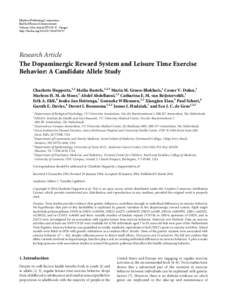 Population genetics DNA Molecular biology Dopamine transporter Attention deficit hyperactivity disorder Variable number tandem repeat Genome-wide association study Dopamine receptor D4 Restriction fragment length polymorphism Biology Genetics G protein coupled receptors |
Add to Reading List |
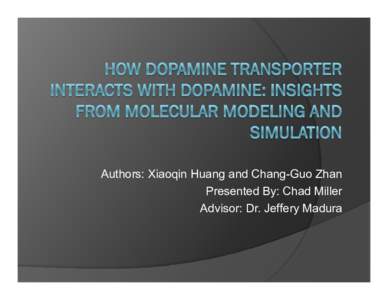 | How Dopamine Transporter Interacts with Dopamine: Insights from Molecular Modeling and SimulationDocID: 1skUE - View Document |
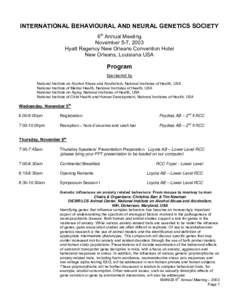 | Microsoft Word - IBANGSNew Orleans USA.docDocID: 1kyZ2 - View Document |
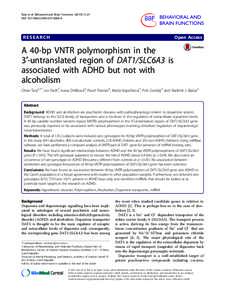 | A 40-bp VNTR polymorphism in the 3′-untranslated region of DAT1/SLC6A3 is associated with ADHD but not with alcoholismDocID: 1g2Wu - View Document |
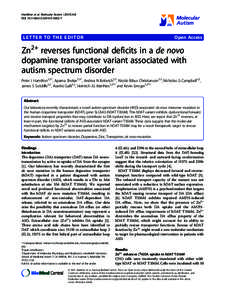 | Zn2+ reverses functional deficits in a de novo dopamine transporter variant associated with autism spectrum disorderDocID: 1bG7t - View Document |
![Now you PCC me, now you don’t: Slovenian clitic-switch as a repair for person-case effects Adrian Stegovec, University of Connecticut ([removed]) The Person-Case Constraint (PCC) has received numerous t Now you PCC me, now you don’t: Slovenian clitic-switch as a repair for person-case effects Adrian Stegovec, University of Connecticut ([removed]) The Person-Case Constraint (PCC) has received numerous t](https://www.pdfsearch.io/img/78260b9c92cc6af9c9955069933fdae1.jpg) | Now you PCC me, now you don’t: Slovenian clitic-switch as a repair for person-case effects Adrian Stegovec, University of Connecticut ([removed]) The Person-Case Constraint (PCC) has received numerous tDocID: 116I7 - View Document |
 The Dopaminergic Reward System and Leisure Time Exercise Behavior: A Candidate Allele Study
The Dopaminergic Reward System and Leisure Time Exercise Behavior: A Candidate Allele Study